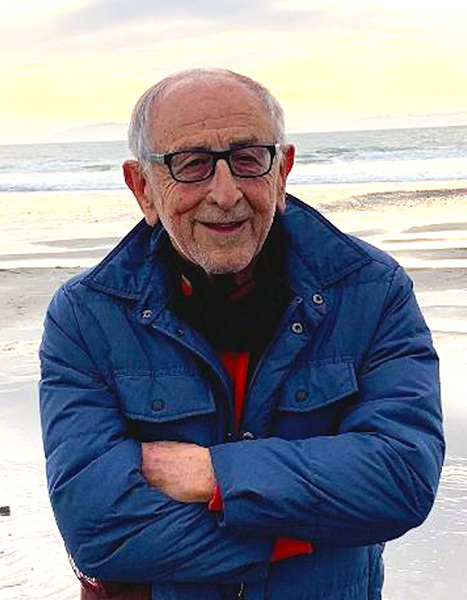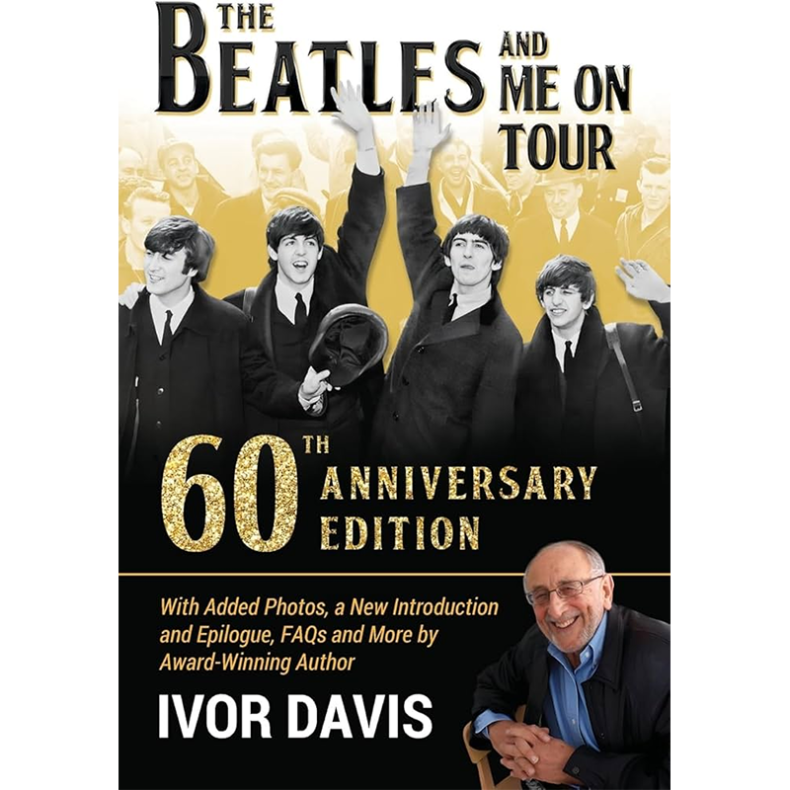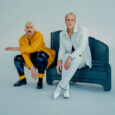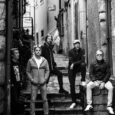IVAN THE TERRIBLE
A CONVERSATION WITH THE BEATLES AND ME ON TOUR AUTHOR IVOR DAVIS
George Harrison once said that The Beatles created this hurricane, and they were in the eye of the storm. Really, no one but The Beatles knew what it was like in that centre. While that is very true, there were a few people who were in The Beatles inner circle who had an idea. There were also a select few journalists who had the opportunity to glance in the inner circle and, maybe, be part of it for a short time. One such person was Ivor Davis. Davis received an assignment from the newspaper for which he wrote, The London Daily Express, requesting that he follow The Beatles around their first North American tour and attend all the shows. Of course, he had to write about it, but it was a pretty envious assignment.
Davis has recently written a book about his experience on that tour, 60 years ago. The book, The Beatles And Me On Tour: 60th Anniversary Edition, is an enjoyable and very readable account of his time with The Beatles during that tour. He goes beyond the tour into the later years and even some solo connections. I recently had the opportunity to discuss his book, THE BEATLES AND ME ON TOUR: 60th ANNIVERSARY EDITION and his ties with The Beatles.
“I had fun writing it. The funny thing is, I was a foreign correspondent for all my life in America. After The Beatles trip, I went on to the next story. It was covering the Warren Commission reporting on the Kennedy assassination. Because you know, if you do an interview with somebody you do the interview, you are in the moment, then next patient please.
So, I left The Beatles, and the next day I was covering another story. It took me a long time to realize, ‘hey, that wasn’t a bad time. That was an incredible time, and I re-examined my fading brain. All these great stories I remember. I remember them more vividly today. It sounds crazy, but I do.”
This wasn’t a one-off interview, but rather Davis spent five weeks with The Beatles as they completed their first North American tour during the Beatlemania years. He spent five weeks on the road, sharing cars, planes, hotels, and meals with The Beatles.
“I was there from day one of the tour. Then everyone else joined us. They would do their story and then leave. I was there from start to finish. It was a whirlwind five weeks. I mean, The Beatles never knew where they were, honestly. We would all get on the private jet and The Beatles wouldn’t know where they were going. The reason I remember that is that when we arrived in Toronto, somebody asked the boys at the press conference, ‘well, what do you think of the Canadian women?’ And The Beatles were, for a moment, staggered, because they weren’t sure where they were. They made appropriate noises in response, but the problem was that they never knew where they were. And they never got a chance to enjoy any of the towns, they were trapped in the hotel room, trapped when they went to the stadium, and they never got to explore anywhere.”
The Beatles were, of course, aware that the tour did not provide a chance for them to enjoy and understand America or Canada.
Ivor Davis recalled, “I remember John Lennon saying to me, ‘we never saw America, we couldn’t go anywhere’.”

AUTHOR IVOR DAVIS
Davis continues about the nature of being in the centre of the storm. “Not only was it crazy in the stadium, where because of the terrible sound system no one could hear them, and they played for 25 minutes. Sometimes they did it faster, because John liked to speed it up and come out and say, it was 23 minutes and 30 seconds. That was their sense of humour. But they had opening acts, but no one came to see the opening acts. The Beatles would do their final song, “Long Tall Sally”, and out the door. I knew once I heard “Long Tall Sally” I had to get into limousine number two. The Beatles didn’t stick around. They had left the building,” Davis chuckled. “The main reason being those teen girls were ferocious. I can tell you, on one occasion, we had the limousine, it had tinted windows, and about 25 young women started shaking the limo. They thought we were The Beatles, and these young women almost overturned the limo I was in. You can imagine, it could be dangerous. And The Beatles used, as I mention in the book, ambulances, they used meat trucks and all sorts of ruses to make a clean escape.”
Sometimes, even the journalists had some issues being with The Beatles. Davis related a funny story of mistaken identity. “A columnist named George Harrison. He could not be mistaken for a Beatle. He was in his 50s, a bit plump, he had a suit, you could not mistake him for the other George Harrison. And yet, we were arriving in New Orleans, or someplace, and we were walking into the hotel, and he was carrying his suitcase. And it fell to the floor, and the girls saw the suitcase and it said George Harrison, and they pounced on poor old George Harrison’s suitcase, ripped it open and escaped with about four pairs of his underwear. Poor old George. That shows you frenzy.”
Ivor was even given a rather humorous nickname by John Lennon, who called him “Ivan The Terrible”. “John Lennon was an ace provocateur. He would needle you, he loved to draw blood and that was his way of getting on. And he was very funny, and his mind worked like lightning.”
The Beatles realised that Davis was not a music critic, nor was he out to get them. They brought him into the circle. “I think what happened was, The Beatles were wary of strangers. But I was their age. I grew up in Liverpool during World War II, and we had the shit bombed out of us with the Germans bombing Liverpool because it was a port town. I was also a working-class lad, and they were working-class lads. After the first 24 or 48 hours, they realized I wasn’t out to get them, and we were on the same wavelength. I joined the family. So much so that in each hotel, the next door to their suite was me. They would leave the door open, and I would walk in, raid their mini bar, much to Brian Epstein’s chagrin, I would just walk in and out. I was a member of the party, a member of the family.”
Davis was there when The Beatles were making history and creating new music. “Paul and John were sitting on the floor, and I could see them writing. On the floor, there were all these screwed up pieces of paper with song lyrics. To this very day, I regret not collecting them all. Look at this! Look at this. I have the original! But I didn’t think that way.” Davis paused for a second. “When we are living history, we don’t say, ‘Hey! We are living history” We only realise years later.”
“The Daily Express wanted me to write George’s column for him. He was supposed to sit down every day and relate a story. But George went to bed at three in the morning and woke up at two in the afternoon, which was two hours after my deadline. I must confess that in my first few columns, I actually made it up. And about 10 days into the tour, George came up to me on the plane. ‘My mother says that the column you are writing under my name is a load of old shite,’ George told me. I said, ‘must confess I agree with you George, but you gotta sit down with me and you have got to give me your thoughts and tell me what’s going on.’ And then we got on very well. George was not the most outgoing guy, and they called him the quiet one because he was quiet. He was not very confident in his own skills and his own ability. The Beatles only gave him one or two songs, if he was lucky and he was like a third-class citizen. It was not until George broke away after The Beatles broke up that we discovered that he had a huge talent for music. He came into his own after The Beatles broke up.”
“I think it is a large snapshot of the way it was. In today’s world, kids of today cannot really appreciate that The Beatles came to America and it was a revolution in music. I marvel, almost everyday, that I was an eyewitness to history, and I not only saw but lived it. That’s the thing, if you live it, you can be fairly authentic, and I lived it.










